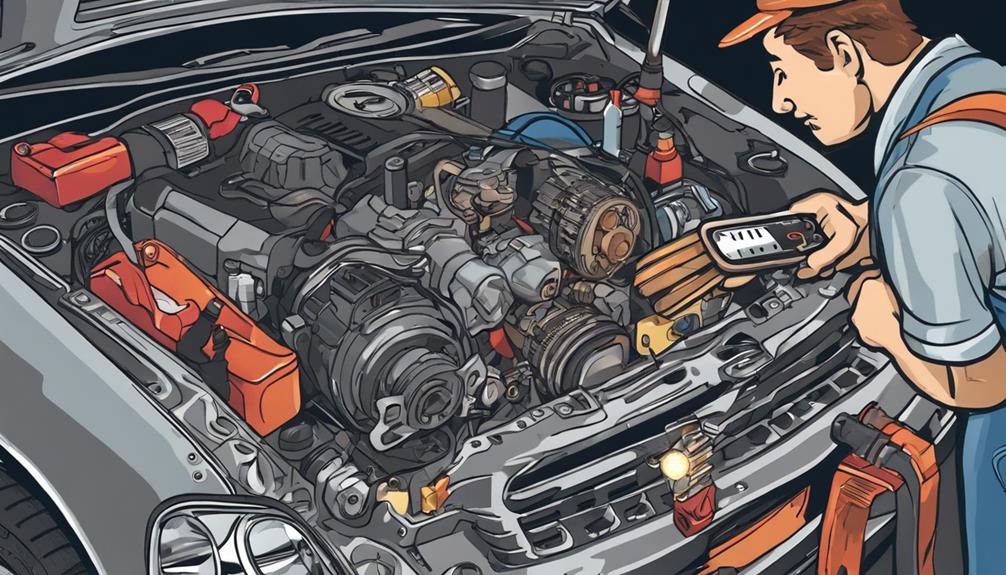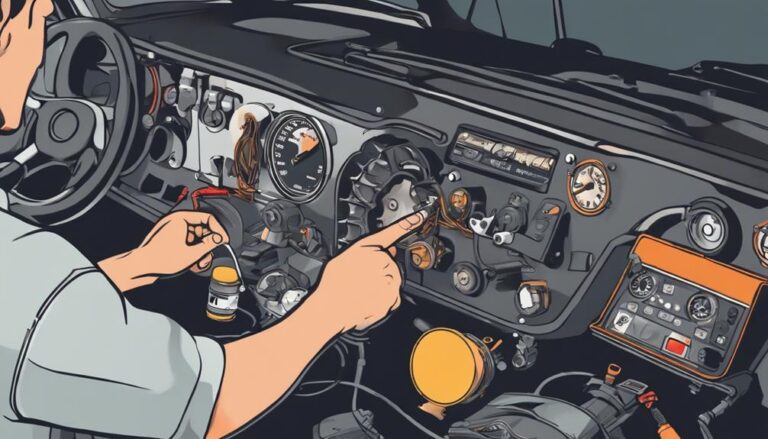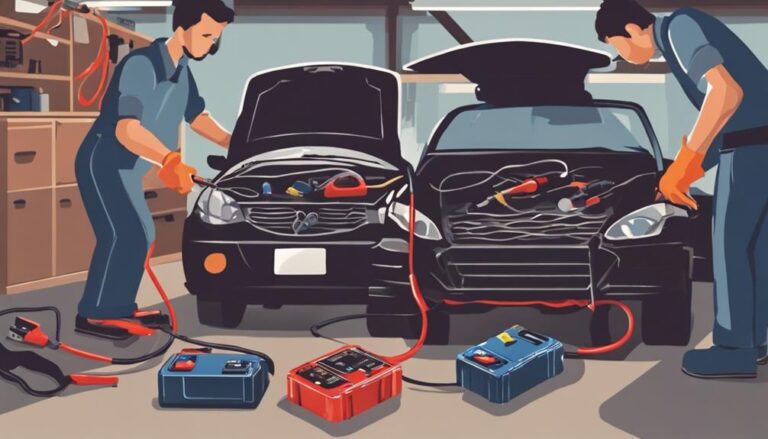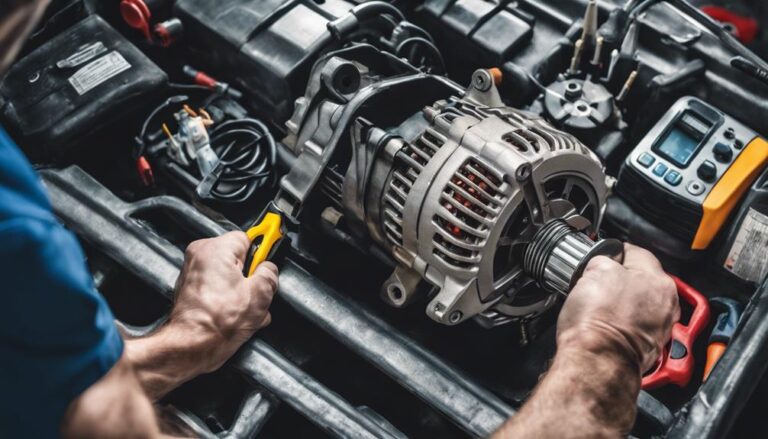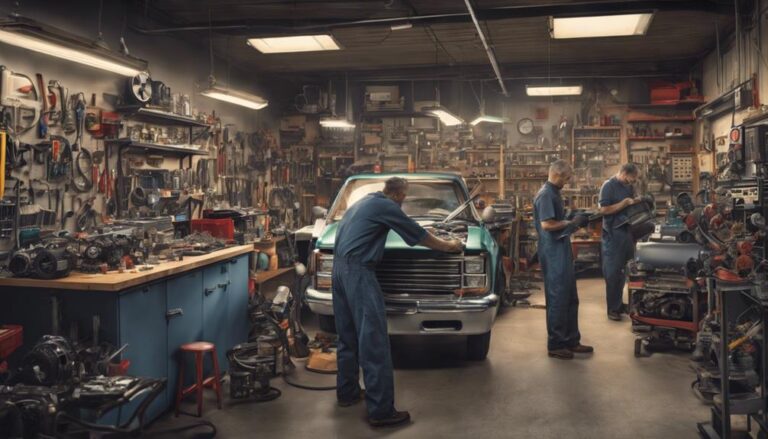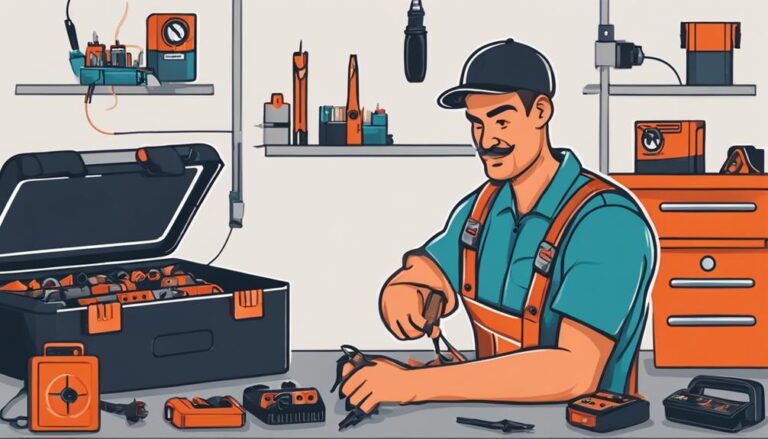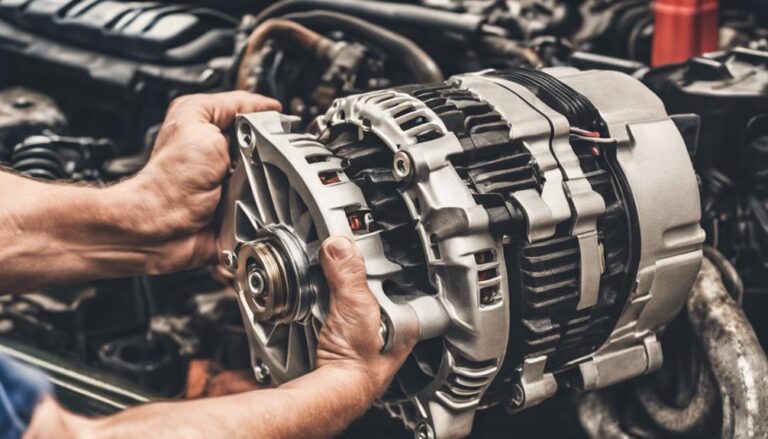Essential Tips for Alternator and Starter Maintenance
Imagine your car's alternator and starter as the heart and lungs of your vehicle, working tirelessly to keep everything running smoothly. But what happens when these essential components aren't properly cared for? Well, let's just say that a little maintenance can go a long way in ensuring they don't skip a beat.
Ready to uncover the crucial tips that can help you keep your alternator and starter in top shape for the long haul? Stay tuned for some practical advice that could save you from unexpected breakdowns down the road.
Key Takeaways
- Regularly inspect and clean starter motor components to prevent malfunctions.
- Follow manufacturer guidelines for maintenance intervals to ensure optimal performance.
- Maintain battery health by monitoring voltage and securing terminals for reliable operation.
- Listen for unusual noises as early indicators of potential alternator or starter motor issues.
Understanding Starter Motor Maintenance
To maintain peak performance and longevity of your vehicle's starter motor, regular cleaning and monitoring of key components are essential. The starter motor plays an important role in starting the engine by engaging with the flywheel. Cleaning the starter motor prevents dirt buildup that can hinder its functionality. Monitoring the battery voltage is important to make sure the starter motor receives sufficient power for operation. Additionally, checking and tightening connections to the starter motor and solenoid is necessary to prevent voltage loss and maintain proper functionality.
When conducting maintenance on your starter motor, it's important to listen for any unusual sounds such as grinding or clicking. These sounds can indicate potential issues that need to be addressed promptly. By staying vigilant and attentive to these details, you can prevent more significant problems from arising and make sure that your starter motor operates smoothly. Regular maintenance not only enhances the performance of your starter motor but also contributes to the overall health of your vehicle's electrical system.
Importance of Regular Inspection
Regular inspections of alternators and starters are essential for identifying potential wear, damage, or loose connections that could affect their performance. Visual checks during these inspections can reveal issues such as frayed wires, corroded terminals, or worn-out belts that may impact the proper functioning of the alternator or starter.
By conducting regular inspections, you enable yourself to take prompt action to address any identified problems before they escalate and potentially result in costly repairs.
Following the manufacturer's guidelines for maintenance intervals is key to ensuring the longevity and best functioning of your alternator and starter. Incorporating preventative maintenance through these regular inspections is critical for maintaining the reliability and efficiency of these components.
Make sure to schedule and conduct these inspections consistently to catch any issues early and keep your alternator and starter in top condition. Remember, a small investment of time in regular inspections can save you from major headaches down the road.
Ensuring Battery Health
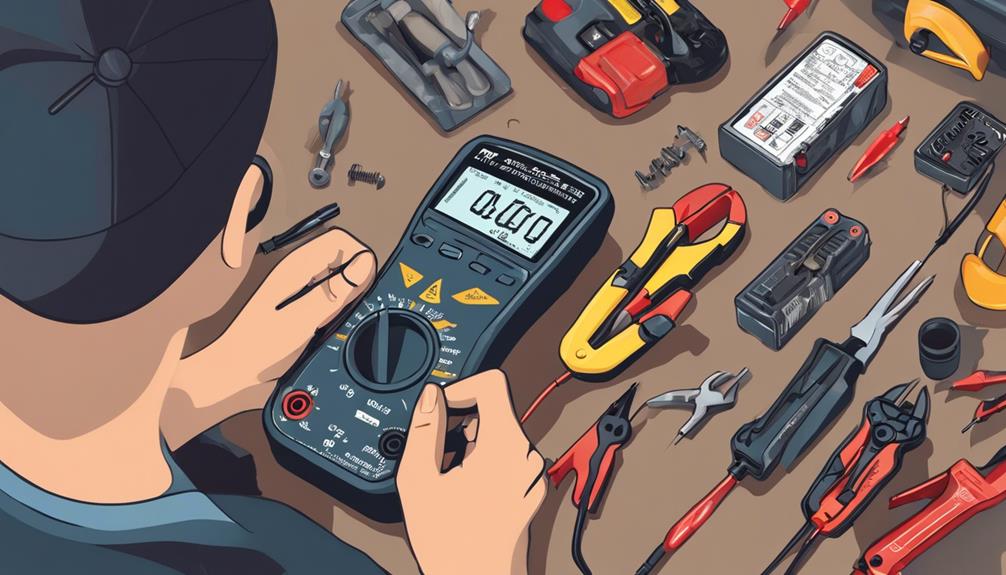
Maintaining top battery health plays a crucial role in sustaining the efficient operation of your alternator and starter components. To keep your battery in peak condition, follow these essential tips:
- Regularly check battery voltage: Monitoring the voltage ensures it stays within the recommended range, promoting the smooth functioning of your starter and alternator.
- Clean and secure battery terminals: Prevent corrosion buildup on the terminals to maintain the performance of your starter and alternator.
- Utilize a trickle charger: During low-use periods, use a trickle charger to uphold the battery's health and support the functionality of the starter motor.
Securing Electrical Connections
For best functionality and longevity of your vehicle's electrical system, ensuring the security of all electrical connections is paramount. Loose or corroded connections can result in voltage loss, impacting the performance of the starter and alternator.
To prevent this, regular maintenance to diagnose and repair any signs of wear is essential. Tightening these connections is critical as it reduces the risk of electrical shorts and potential damage.
By keeping all connections in good condition, you maintain a stable electrical flow necessary for the proper operation of the alternator and starter. Remember, the voltage regulator relies on secure connections to function at its best.
Make it a habit to check and secure all electrical connections during routine maintenance to guarantee the reliable performance of your vehicle's electrical system.
Listening for Unusual Noises
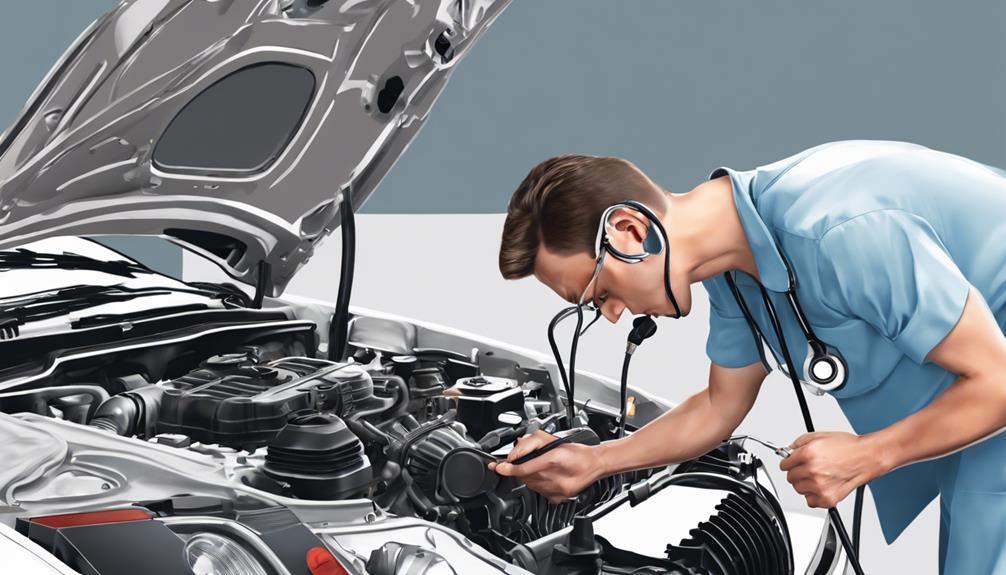
To properly maintain your vehicle's electrical system, stay vigilant for grinding, whirring, or clicking sounds that could signal potential issues with the alternator or starter. These unusual noises can be early indicators of underlying problems that, if left unattended, may lead to costly repairs. When you hear such sounds, it's essential to take action promptly to prevent further damage to your vehicle's electrical system. Here are some key points to bear in mind:
- Unusual noises may indicate worn-out bearings in the alternator or starter motor.
- Promptly inspect the vehicle if you notice any unusual sounds to avoid potential issues.
- Addressing any strange noises early on can help prevent a bad alternator or faulty starter from causing more significant problems.
Listening for unusual noises is a critical aspect of alternator maintenance. By checking belt tension and being attentive to any unusual sounds, you can detect and address issues before they escalate into more severe electrical system problems.
Frequently Asked Questions
How Do I Keep My Alternator Healthy?
To keep your alternator healthy, maintain proper belt tension, inspect electrical connections, monitor battery charge levels, and clean the unit regularly. Following recommended maintenance intervals is essential for extending the alternator lifespan and ensuring a reliable electrical system.
What Is the Care and Maintenance of the Alternator?
To care for your alternator, remember that it powers your vehicle's electrical system and influences battery health. Regular inspections, proper grounding, and preventing corrosion are essential. Maintaining the alternator's lifespan guarantees ideal charging system performance.
What Is the Preventive Maintenance on a Car Starter?
When maintaining your car starter, troubleshoot for issues like grinding noises or slow cranking. Address problems promptly with repairs or replacements. Diagnose starter components, including the solenoid, motor, and relay. Keep the starter system in top shape for reliable performance.
How Do I Stop My Alternator From Going Bad?
To stop your alternator from going bad, monitor voltage fluctuations, check belt tension, prevent corrosion, maintain the cooling system, inspect electrical connections, guarantee proper grounding, reduce dust accumulation, care for the battery, and adjust driving habits.
Conclusion
To sum up, remember the old saying, 'An ounce of prevention is worth a pound of cure.' By following these essential maintenance tips for your alternator and starter, you can guarantee peak performance and avoid costly repairs down the road.
Regular inspections, battery health checks, tight electrical connections, and listening for unusual noises are all key to keeping your vehicle running smoothly. Stay proactive and attentive to prolong the life of your alternator and starter.

